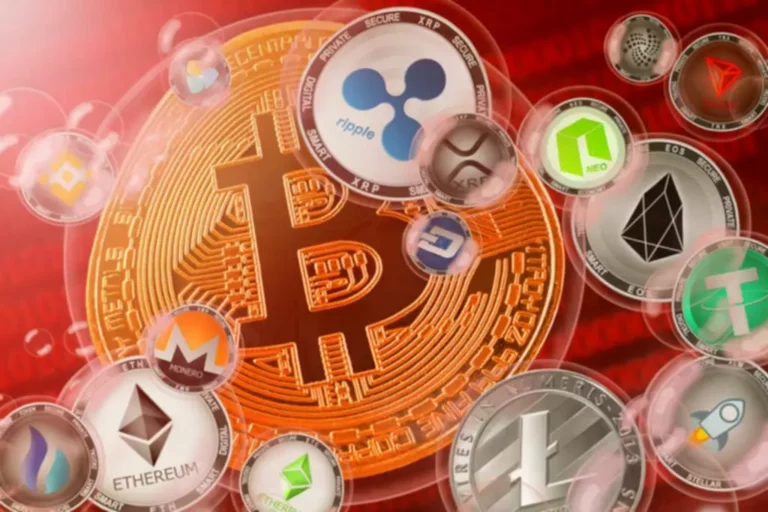Content
Conversely, in a non-custodial wallet like the BitPay Wallet, only users can access Digital asset their private keys, ensuring complete control over their assets. As stated before, the term “custodial wallet” refers to a type of digital wallet that holds a user’s private keys while also providing backup and security for their assets. Custodians seek to make crypto storage as convenient as possible for users — some users choose safe and user-friendly solutions that allow them to have instant access to their assets.
Does Kraken have a crypto wallet?
Non-custodial wallets allow you to own your private keys independently. You can create a free custodial wallet through centralized crypto exchanges like Coinbase or KuCoin. Once your wallet is created, you authorize it to perform certain functions like signing transactions, managing the wallet keys, and more. Some crypto users say this means custodial wallet users don’t actually “own” their https://www.xcritical.com/ crypto, since they don’t control the private key. Do not feel pressured into using non-custodial wallets if you prefer to use custodial services.
Non-custodial wallets: overview
Day traders should store their coins at a broker or exchange and trade from there. Optionally, at the end of the day, you can transfer your coins back to your hardware wallet. If you only trade with a portion of your coins, it remains a good option. We have more than 10 years of experience in managing and securing cryptocurrency. We take this responsibility very difference between non custodial wallets vs custodial wallets seriously and have built in the highest level of security.
- The foremost factor to consider when comparing the Custodial vs non-custodial wallets is who holds the private key.
- Instead, the third-party provider is entrusted to safely store those keys on behalf of a crypto owner.
- A custodial wallet, like Ceffu (formerly Binance Custody), is a service that owns the private key to your wallet and holds your assets in custody.
- When using a non-custodial wallet, the user needs to ensure the safety of their private key because losing them results in losing access to the funds.
- Still, most users adopt the verb to make it easier for beginners, so we will use the term throughout this article.
- Information was gathered from official websites and reputable review platforms.
Best Custodial Wallets for Crypto
For crypto users seeking the freedom offered by a non-custodial wallet there are a number of trusted providers in addition to BitPay Wallet. Some of these include Trust Wallet, Electrum, Exodus, Edge Wallet, Blockchain.com and MetaMask. So with a custodial wallet, you give a third party access to your private keys. Custodial wallets are encountered at brokers and crypto exchanges and any party where the private keys are not in your own possession. If you are searching for a credible blockchain development service provider, contact Peiko.
It’s developed by finance professionals with over 40 years of experience and is owned by HDR Global Trading Limited. If you already hold crypto in another wallet, you can transfer it to your new wallet using the appropriate wallet address. If you’re buying crypto for the first time, you should be able to use a credit or debit card, or connected bank account, to purchase crypto. Be sure to evaluate an exchange’s ease of use, features, security and regulatory measures, and—most importantly—trustworthiness. It’s best to stick with large, reputable CEXs, but even then, there’s no guarantee of security.
Moreover, look for Evaluation Assurance Level (EAL) ratings of at least EAL6 for hardware wallets. In the case of software wallets, check for audit reports by reputed firms like Halborn, Certik, and Hacken. On the other hand, the majority of custodial wallets allow you to create a new wallet without any registration or verification process. To do so, you only need to visit their website or install their official app and create a free wallet within a few minutes. However, non-custodial wallets are way more secure as you’re the only person in control of your wallet, restricting unauthorized access.
In contrast, if you use a non-custodial wallet, you alone have complete control over your assets. MetaMask and Binance Chain Wallet are examples of non-custodial wallets. Recent events in the crypto industry have underlined the risks of custodial wallets. If the exchange holding your funds fails, mismanages assets, or gets hacked, you could lose everything. Self-custody, where you are your own custodian, is becoming the favored approach for users who want genuine ownership of their crypto.
But, this also means that you are entrusting your private keys to a third party. That’s why it’s important to choose a reliable exchange or service provider. Creating a new non-custodial wallet in the BitPay app is fast and easy. The well-known brands of Trezor and Ledger Nano S are preferred here, given their support for many popular coins, their long experience and their high reputation.

Consequently, users enjoy faster execution, which usually takes hours or days, depending on network congestion and the exchange’s lengthy KYC process. You can also use exchanges like Coinbase or Gemini, which offer insurance to avoid loss in case of wallet hacks. For example, an insurance fund completely covered customers’ stolen assets worth $280 million in the KuCoin exchange hack of 2020. At Anycoin Direct, we give you two choices for storing your cryptocurrency.
The private key is a secret code that must be kept confidential and used to access the crypto wallet and perform transactions. As we’ve seen, one disadvantage of using non-custodial wallets relates to accessibility and ease-of-use. They are usually less user-friendly and tend to pose a problem to first-time crypto holders. As non-custodial service providers evolve, this should be resolved in the future. Trust Wallet and MetaMask are great examples of non-custodial wallet service providers.
In this case, the advantage for the holder is ease of access—to enter the wallet, you only need to enter one key. Custodial wallets may potentially be a helpful option for those getting started with cryptocurrency or seeking assistance managing their funds. Many custodial wallets provide user-friendly experiences, customized support, and built-in security features for data protection.
Returns on the buying and selling of crypto assets may be subject to tax, including capital gains tax, in your jurisdiction. Any descriptions of Crypto.com products or features are merely for illustrative purposes and do not constitute an endorsement, invitation, or solicitation. In conclusion, both custodial and non-custodial wallets have their advantages and disadvantages. The choice between the two ultimately comes down to personal preference and what the user values more – ease of use or security. While custodial wallets are easier to use, they require the user to trust a third party to manage. The user does not need to worry about the technical details of storing their cryptocurrency, as the third party manages it for them.
A liquidity crisis like the one at Celsius could also jeopardize investor funds. And since custodial wallets cannot operate offline, they are more prone to hacks and online theft. Fireblocks is an easy to use platform to create new blockchain based products, and manage day-to-day digital asset operations.

Bear in mind that whether you are using a custodial or non-custodial wallet, you should always be careful and adopt best practices to enhance the security of your funds. Some wallets also offer the option of storing and transferring NFTs, which are non-fungible tokens issued on a blockchain. If you are not confident about keeping your crypto secure by yourself or feel self-custody is overwhelming, consider creating an account with a regulated crypto exchange in your country. Owning a crypto wallet is one of the primary steps into the crypto world. From trading tokens and minting NFTs to voting on governance proposals, you’ll need a wallet.
So, even if you lose the access to data, you can regain the access by requesting the third party. When it comes to backup and recovery possibilities, non-Custodial crypto wallets lag behind the Custodial one. Now you know the basics of custodial vs non-custodial wallets, it’s time to explore them for yourself. Cryptocurrency is essentially a bearer asset, as the person who holds the private keys to a wallet effectively controls (owns) the coins inside. Prioritize security by assessing the platform’s reputation, regulatory compliance, and insurance coverage. Whether you’re a beginner or experienced, finding a balance between convenience and security is essential for a successful custodial wallet experience.